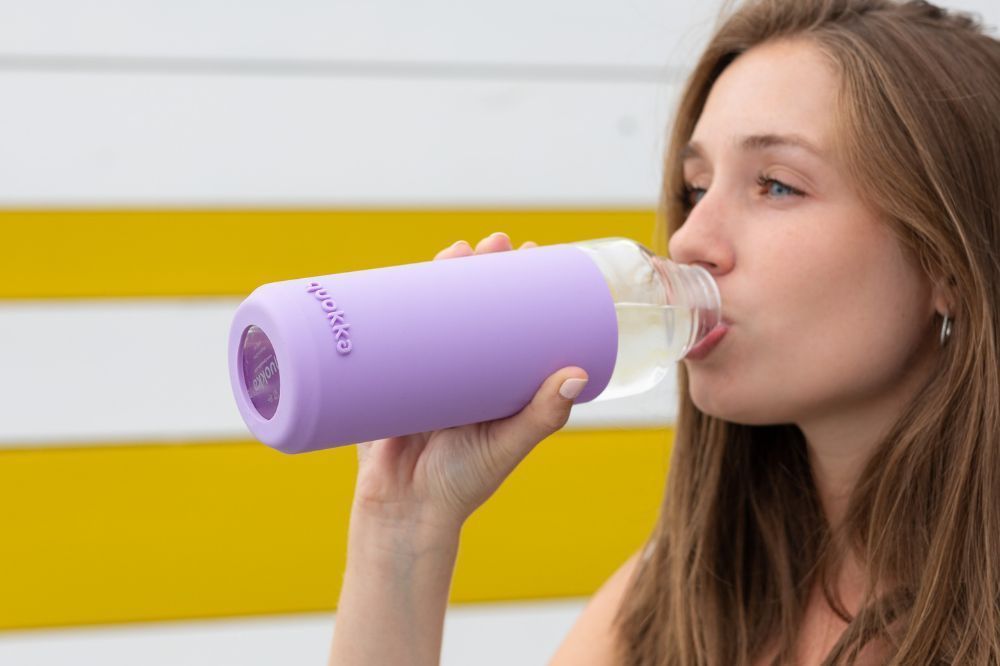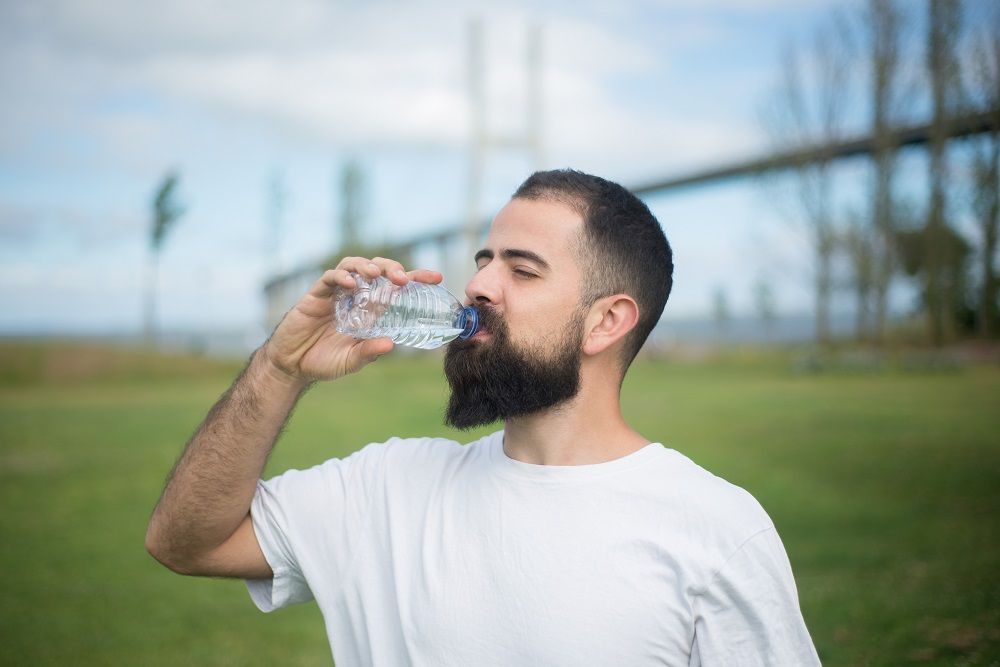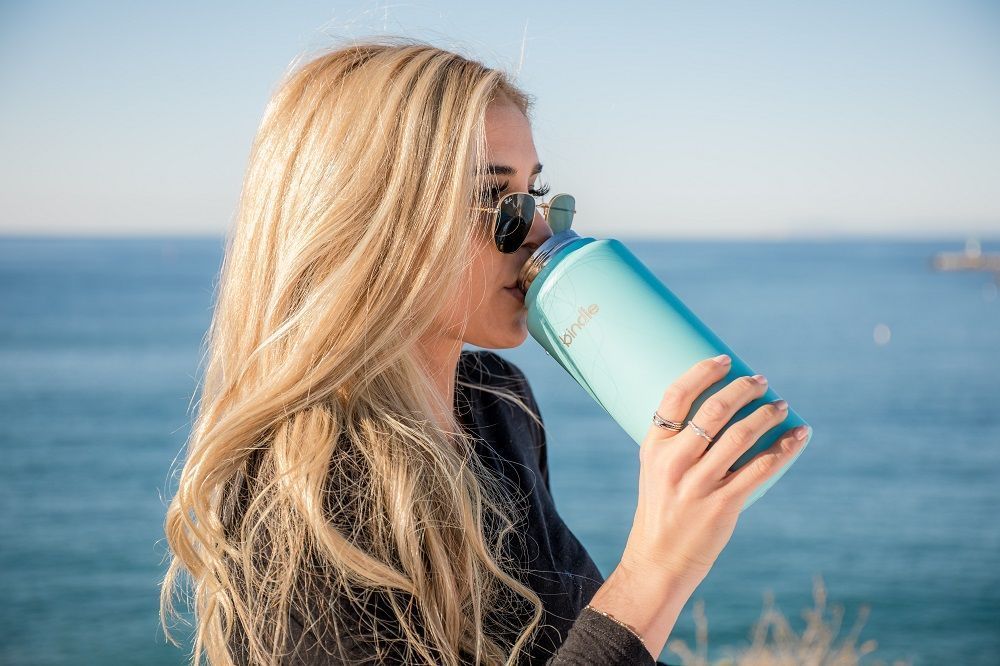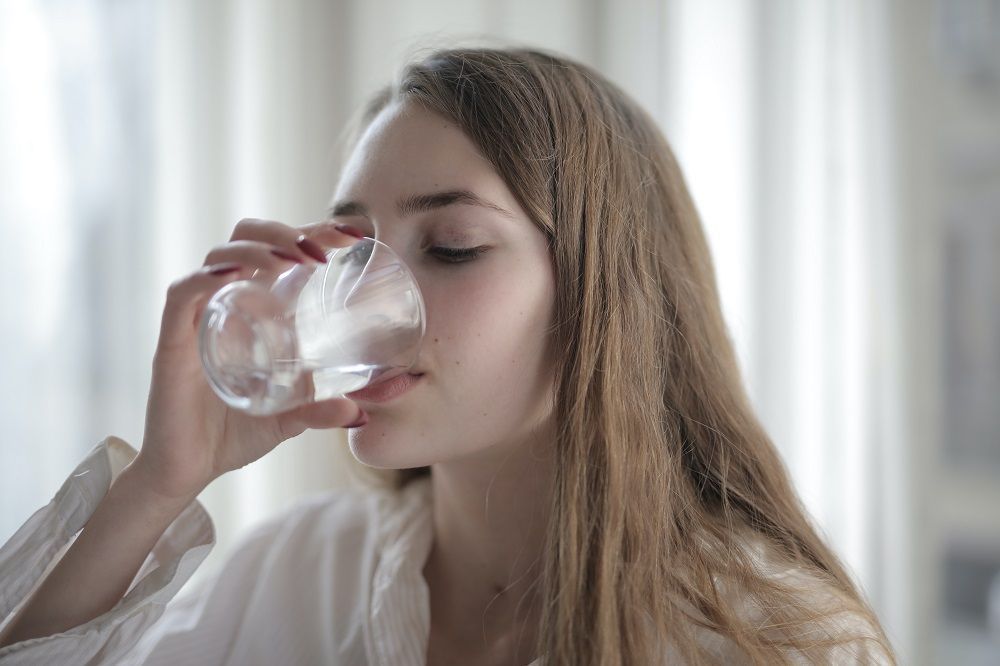

Getting enough water daily is essential to staying healthy, but how much water is enough? The widespread advice is to drink eight glasses of water daily, but this recommendation does not apply to everyone. Daily water intake recommendations vary by a person’s age, sex, pregnancy, breastfeeding, and health status.
Read more about how much water you should drink a day, why it is important to overall health, and signs of adequate hydration.
How much water do you need per day?
Adequate hydration, or consuming enough fluids, is essential for your health. Hydration impacts skin health, neurological function, digestion, and kidney function.
People lose (and must replace) water throughout the day from sweating, breathing, urinating, and having bowel movements. For healthy people, the vasopressin hormone (also called the antidiuretic hormone) and the kidneys help to regulate fluid loss. Thirst tells your body to drink more fluids.

Most people will lose a little over 16 ounces (or 500 millilitres) of fluid through urine per day. That means that if you drink more than 16 ounces (2 cups) of fluids to replace the urine lost. If your urine is very pale and has little to no odour, this is a good indication that you are well-hydrated. Darker, concentrated urine can indicate dehydration.
The amount of water your body needs varies and depends on how much you exert yourself and how much you urinate or sweat. For most healthy adults, the volume of fluids to prevent dehydration is:
- 13 cups for men
- 9 cups for women
You can get water through other beverages or foods high in water content, like fruits and vegetables. In the United States, some estimates show that about 22% of our water intake comes from our food.
You may need more water if you:
- Live or work in hot climates
- Are physically active and sweat a lot
- Have a fever, diarrhoea, or vomiting
- Are pregnant or breastfeeding
What are the benefits of drinking water?

Water is essential to health; humans can only survive for a few days without it. Water makes up 75% of body weight in infants and 55% of body weight in older adults. Every cell in your body requires water to function and repair itself.
The benefits of drinking water include:
- Avoiding dehydration
- Helping to regulate your body temperature and blood pressure
- Lubricating and cushioning your joints
- Protecting your spine and other body tissues
- Ridding the body of waste through sweat, urine, and bowel movements
- Preventing urinary tract infections, kidney stones, and constipation
Does drinking water help you lose weight?
The advice to drink water for weight loss is widespread. One study found that 30% of adults in the United States who tried to lose weight stated that they drank a lot of water. A smaller research study showed that 59% of adults applied drinking water frequently as a weight loss or weight control practice.
Some people believe that drinking water in place of sugar-containing beverages such as soda and juice may prevent overweight and obesity by reducing the total number of calories consumed. Further, drinking plenty of water can increase the feeling of fullness and reduce hunger in the short term.
However, there’s limited evidence that drinking water can help with weight loss or maintaining weight over time. Many studies showed that more water consumption was not associated with reduced body weight.
Despite inconclusive evidence around water for weight loss, the Dietary Guidelines for Americans recommends choosing calorie-free beverages, such as water, as a primary source of hydration over other sugar-sweetened beverages as part of a healthy diet.
Can other fluids help you stay hydrated?

There are many other beverages besides water to help you stay hydrated.
Best choice beverages include:
- Low- or no-calorie beverages such as plain coffee, plain tea, sparkling or seltzer water, and flavoured waters
- Drinks with calories and other essential nutrients, such as dairy and fortified nondairy milk, 100% fruit and vegetable juices, or smoothies
Other fluids that can help you stay hydrated, but should be limited include:
- Sugar-sweetened beverages, such as soda and fruit drinks
- Caffeinated drinks such as energy drinks, as well as coffees, and teas with added milk and sweeteners
- Drinks with sugar alternatives
- Sports drinks
Sports drinks generally contain carbohydrates, electrolytes, and vitamins. Research indicates that sports drinks may benefit people engaged in vigorous exercise for more than one hour, especially if they are sweating heavily. For most people, regular water is sufficient to stay hydrated during exercise.
How to tell if you’re hydrated

The easiest way to tell if you’re hydrated is to check your urine. If you urinate regularly and it is light to clear in colour and does not have a strong odour, you are likely hydrated.
Other signs of hydration may include a regular pulse, firm skin (bounces back when pinched), and adequate moisture in your eyes, mouth, and lips. Drinking water or other fluids regularly throughout the day and eating water-rich foods can help you stay hydrated.
It is easier to identify signs of dehydration than hydration. Being well-hydrated should result in the absence of symptoms such as:
- Excessive thirst
- Dry mouth, eyes, or skin
- Headaches or cognitive impairment
- Confusion, dizziness, or irritability
- Lack of urination or constipation
- Fatigue
Summary
Drinking water is necessary for optimal health. The amount of daily water intake required to stay hydrated can vary depending on your specific needs, health conditions, and lifestyle. You can consume water and fluids through foods and other beverages. If you live or work in a hot climate or exercise and sweat a lot, consider increasing the number of glasses of water you drink daily.
A word of wellness
For most people, eating and regularly drinking throughout the day is sufficient to stay hydrated, especially if you are eating water-rich foods such as fruits and vegetables. Not waiting to drink when you are excessively thirsty and making sure that you are urinating regularly can help you stay on top of your hydration status. If you are still concerned about how much water to drink, speak with a trusted healthcare provider, such as a registered dietitian, to help you develop a plan to stay hydrated.
This story first appeared on www.verywellhealth.com
(Credit for the hero and featured image: Bluewater Sweden/Unsplash)
© 2021. Health Media Ventures, Inc. . All rights reserved. Licensed from Health.com and published with permission of Health Media Ventures, Inc. . Reproduction in any manner in any language in whole or in part without prior written permission is prohibited.
Health and the Health Logo are registered trademarks of Health Media Ventures, Inc. Used under License.
Frequently Asked Questions (FAQs)
Question: How much water is too much in a day?
Answer: There’s no clear benefit to drinking more water than the recommended daily amount to stay hydrated, 13 cups for men and 9 cups for women. Healthy people will excrete excess water through their urine.
Question: How much water should you drink during exercise?
Answer: For high-intensity exercise exceeding 45–60 minutes, you should drink 17–20 ounces of water two hours before the start and seven to 10 ounces of fluid every 10–20 minutes during exercise.
Question: How much water should you drink based on your weight?
Answer: Several formulas across the internet use weight to calculate the amount of water an individual should drink daily. However, this rule doesn’t consider the number of fluids you consume through food or other beverages. An easier way to check your hydration status is to examine your urine output and look for a pale yellow colour with no odour to indicate hydration.
Subscribe to our newsletter to get the latest updates.
You’re all set
Thank you for your subscription.

